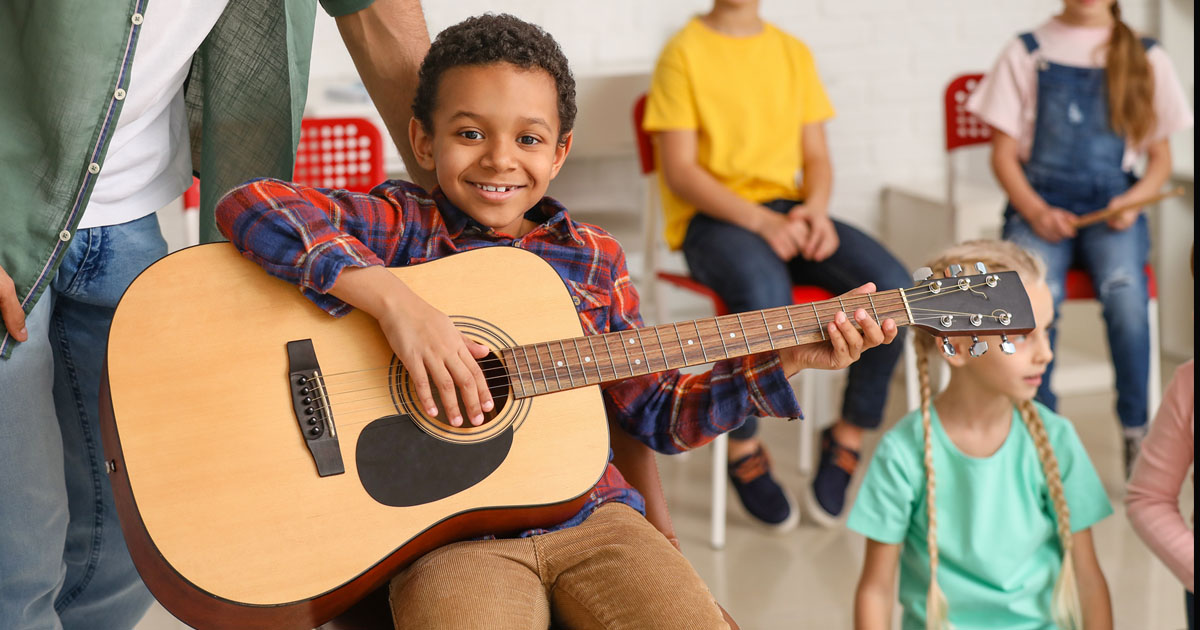Music Lessons in NE Philly
Benefits of music lessons for your child

Learning to play an instrument can help your child fine-tune his or her ear and enhance skills needed for education and social interaction. Between soccer and scouts, your school-aged child’s schedule is loaded with activities. If you’re on the fence about adding music classes to the list, take note of the benefits that come with signing your little one up for guitar lessons.
Your child may not be the next Beethoven, but they may have an easier time learning math, practicing good manners, and patience.
Improve academic skills
Music and math are highly intertwined. By understanding beat, rhythm, and scales, children are learning how to divide, create fractions, and recognize patterns. Music wires a child’s brain to help him or her better understand other areas of math. As they get older, they’ll start reciting songs, calling on their short-term memory and eventually their long-term memory.
Develop physical skills
Certain instruments, such as the guitar, help children develop coordination and motor skills. Instruments not only help develop ambidexterity, but they can also encourage children to become comfortable in naturally uncomfortable positions. Enhancing coordination and perfecting timing can prepare children for other hobbies like dance and sports.
Refine discipline and patience
Learning an instrument teaches children about delayed gratification. The guitar, for example, has a steep learning curve. Before you can make a single sound, you must first learn how to hold the guitar. Playing teaches kids to persevere through hours, months, and sometimes years of practice before they reach specific goals. Private lessons and practicing at home require a very focused kind of attention for even 10 minutes at a time. This improves patience.
Boost self-esteem
Lessons offer a forum where children can learn to accept constructive criticism. Turning negative feedback into positive change helps build self-confidence.
Introduce children to other cultures
By learning about and playing a variety of instruments, kids can discover how music plays a critical role in other cultures. Although the modern-day guitar has roots in Spain, learning to play it exposes children to modern music as well as classical as the guitar has been around for centuries through almost every culture. It’s important to familiarize children with other cultures at a young age because this fosters open-mindedness about worlds and traditions beyond the ones they know. This helps to teach tolerance.
Ultimately, the instrument you and your child choose should depend on a number of factors.
- Is your child excited about this instrument? Do they like the way it sounds and feels.
- Is the instrument too challenging or not challenging enough?
- Can you afford the instrument and the lessons?
- As a parent, do you like the sound enough to listen to your child practice it for hours at home?
- Is your child interested in a particular style of music? If so, factor that into your instrument choice.
Experts don’t always agree on which instruments are best for kids to learn, but many music teachers do agree that it’s hard to go wrong with piano, percussion, recorder, guitar, or violin. And now that school is almost out for the summer, taking lessons without the distractions of schoolwork and other activities may be just the thing your child needs.